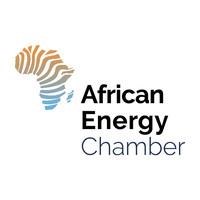
BY MENGISTEAB TESHOME
It is clear that energy poverty is catastrophic not only on a macroeconomic level, but it also profoundly impacts people’s daily lives, as without energy, infrastructure, schools, hospitals, and other essential services cannot be developed. Imagine a hospital losing power in the middle of a pandemic? It could cost lives.
According to Africa energy Chamber press release energy poverty represents one of the most critical challenges for development in Africa. International Energy Agency, report of in 2019 confirms, the continent had more than 580 million people without electricity access, with that number expected to grow to 660 million people by 2030.
A critical task for policy makers is to address the persistent lack of access to electricity and clean cooking, and the unreliability of electricity supply, which have acted as brakes on the continent’s development. Today some 600 million people do not have access to electricity and around 900 million people lack access to clean cooking. Nonetheless, the momentum behind today’s policy and investment plans is not yet enough to meet the energy needs of Africa’s population in full.
Despite progress in several countries (e.g. Kenya, Ethiopia, Ghana, Senegal, Rwanda), current and planned efforts to provide access to modern energy services barely outpace population growth. In 2030, 530 million people still lack access to electricity and nearly one billion people lack access to clean cooking. As a result, the global population without access to energy becomes increasingly concentrated with 90% without access to electricity and almost 50 percent without access to clean cooking in 2040 living on the African continent.
This is not a proposal for African countries to stop developing long-term energy projects or abandon their goals of reducing greenhouse emissions by developing large-scale renewable energy projects. On the contrary, power ships should be considered a viable solution to address energy insecurity issues in the continent in the following years.
Africa has abundant natural resources and the associated revenues could be an important motor for development. The Grand Ethiopian Renaissance Dam (GERD) is estimated to cost close to 5 billion US dollars, about 7 percent of the of the 2016 Ethiopian gross national product. The lack of international finance for projects on the Blue Nile River have had long been alleged to Egypt’s persistent campaign to maintain presumed hegemony on the Nile water share. Ethiopia is forced to finance the GERD with crowd funding through internal fund raising in the form of selling bond and persuading employees to contribute a portion of their incomes.
Ethiopians stand as one because GERD is more than a dam for energy rather it is flagship project that signifies that Ethiopians can decide their fate and safeguard their sovereignty.
In my view if Africa to develop it is high time to put in place the need for strategic thinking on future investments, transparent resource revenue management and efforts to reform and diversify economies.
Africa is also home to many of the mineral resources that are critical in driving global energy transitions. The Democratic Republic of the Congo accounts for two-thirds of global cobalt production and South Africa produces 70 percent of the world’s platinum. Rising demand for the minerals that can support global energy transitions offers an opportunity for minerals-rich countries in Africa, but failure to keep up with demand could not only hamper Africa’s economic outcomes but also hold back the pace of global energy transitions. Responsible stewardship of these resources is vital. Robust regulatory and oversight mechanisms would be needed to ensure that revenues produce visible positive results for local communities and that negative impacts on the environment are minimized.
Africa and its people cannot wait for governments and companies to agree on the design, pricing, and financing of energy projects with a long development time. African countries need energy now. To grow their economies and ensure nation’s comprehensive development in areas. And to achieve the most precise and laudable goal of every government: provide for their people.
Ethiopia is working in line with the set goals and directions, and in my view this crystal clear fact should be well acknowledged by downstream nations like Sudan, Egypt among others
The Ethiopian Herald 11 April 2021





